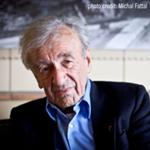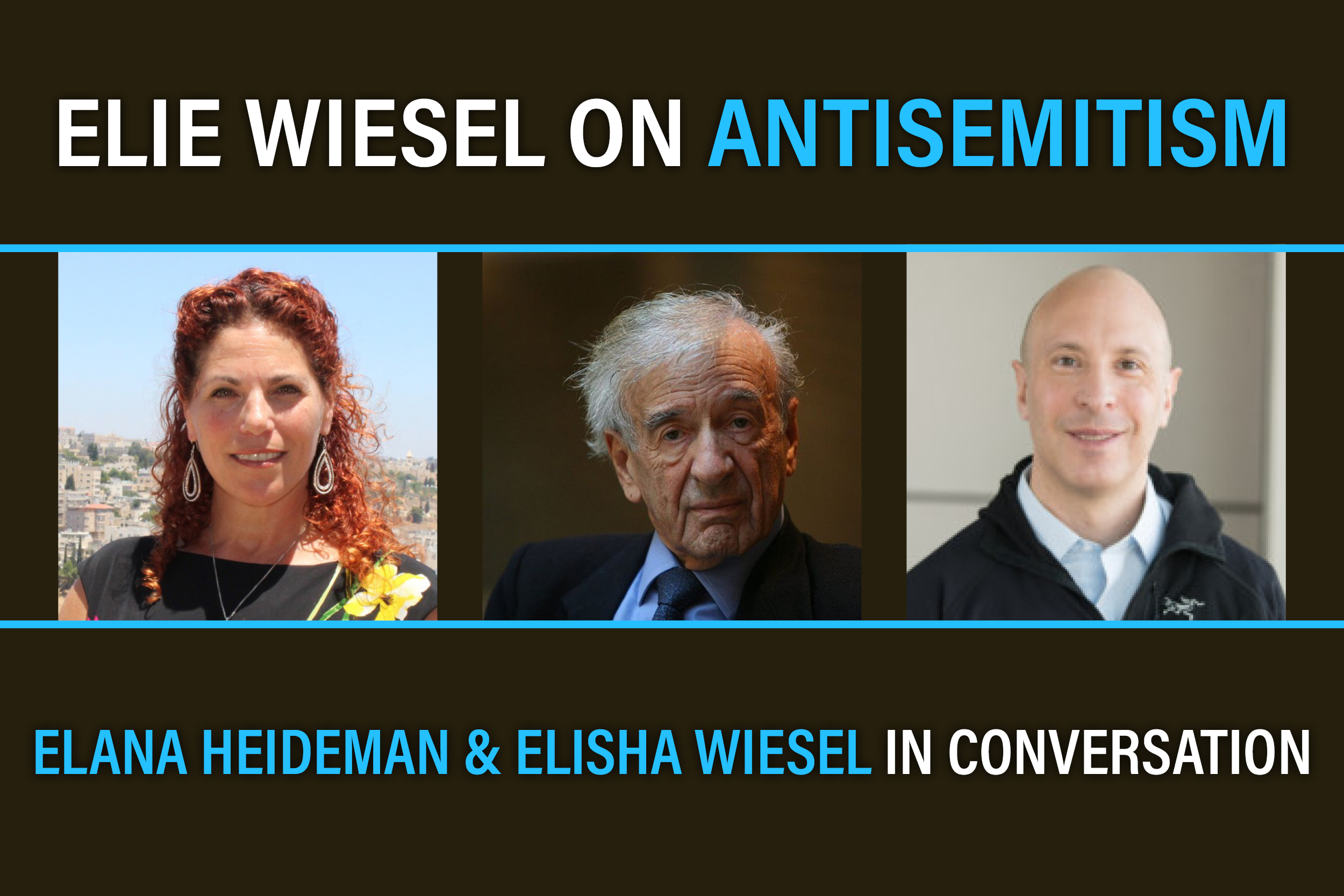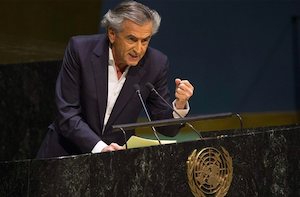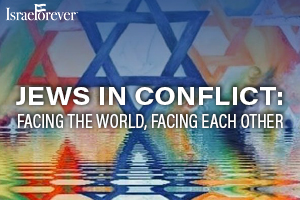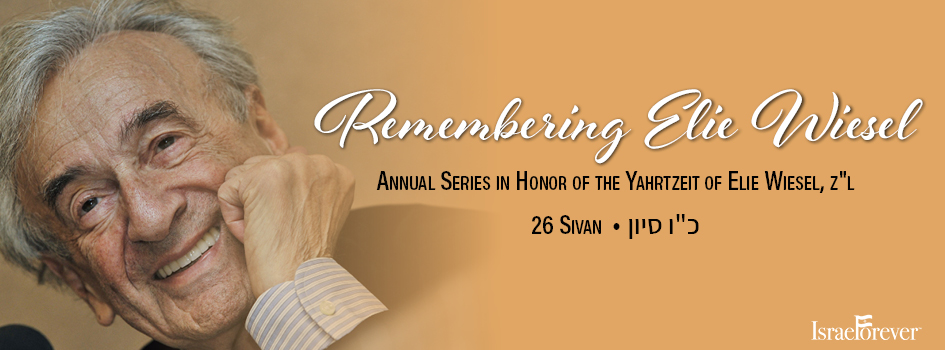WHY I AM AFRAID
By Elie Wiesel
Excerpts from a diary, A Jew Today
Perhaps it would be best not to admit it publicly. I feel threatened. I'm afraid. For the first time in many years I fear the nightmare maybe starting all over again. Perhaps it never ended. We may have lived, since the Liberation, a period between parentheses. And now they are closed again.
Is another Holocaust possible? I often asked my students that question. Most answered yes; I said no. By its dimension, its scope, the Holocaust was a unique event; and it will remain so. I explained to them that the world has learned a lesson, that hate and murder transcend those who take part in them directly: one begins by killing others only to massacre one’s own in the end. Without Auschwitz, there might have been no Hiroshima. The annihilation of a people leads inevitably to the annihilation of mankind.
Oh yes, so naive was I that I thought, especially during the early post-war years, that Jews would never again be slandered, isolated, handed over to the enemy, whose heart was filled with hate. Anti-Semitism, I thought, had died under a sky of ashes somewhere in Poland; we had nothing more to fear; the world would never again be insensitive to our anguish. I was convinced that, paradoxically, men of today and men of tomorrow would be protected by the terrifying mystery of the concentration camp phenomenon.
I was wrong. What happened could happen again. I may be exaggerating. I may be too sensitive. After all, I do belong to a traumatized generation. We have learned to believe threats more than promises. The disquieting signs are proliferating. The sickening spectacle of an enthralled international assembly celebrating a spokesman for terror. The speeches, the votes against Israel. The dramatic loneliness of this universal people. An Arab king presents his gifts with deluxe editions of the infamous Protocols of Zion. The desecrated cemeteries in France and in Germany. The campaigns in the Soviet press. The recent retrowave - a trend among writers, movie makers and others towards retrospective “evaluation" of events surrounding World War II - that vulgarize the experience. The anti-Zionist, anti-Jewish pamphlets that distort our hopes. One must be blind not to recognize it: hate of the Jew has once more become fashionable.
Nothing surprising, then, that in so many places Jewish existence is in jeopardy again. In October 1973, while the Israeli Army was experiencing grave, fatal circumstances, Western Europe, with only rare exceptions, refused its help, and much worse, attempted to sabotage America’s aid and to push Israel to compliance. Europe gave free hand to the aggressors, accepting in advance Israel's certain defeat, that is to say, its probable liquidation. And now? Will this people, so young and yet so old, survive the next attack? At what cost? How many times will Israel be called upon to sacrifice the best amongst its children? How long can a community of men live in a stage of siege, inside a hostile environment? Is a posthumous victory for Hitler conceivable?
For those of us who have lived the human and Jewish condition to its ultimate debts, there can be no doubt: at this point in history the Jewish people and the Jewish state are irrevocably linked; one cannot survive without the other. We have rarely been as united. And as alone.
And so the notion of a new collective catastrophe no longer seems preposterous. We already know that as far as we are concerned, the impossible is possible. When it comes to Jewish history, there is nothing unthinkable.
I say this reluctantly and for the first time. I have always placed the Holocaust on a mystical level, beyond human understanding. I have quarreled with friends for making certain easy analogies and comparisons with current events. The concentration camp phenomenon eludes the philosophers as much as it does the novelists, and it may not be dealt with lightly, by any means. I speak of it now, in connection with the present, only because Jewish destiny has once again become subject to discussion.
That is why I am afraid. Images from the past rise up and cloud current events. Blackmail in some quarters, abdication in others. Overt threats, hidden complicities. Friends who suddenly declare their “neutrality”. Neutrality whose hostility becomes apparent. The enemy who becomes ever more powerful and ever more attractive. If allowed to have his way, and he is - he will become the god of our cursed age, demanding and obtaining the future of the Jewish people, once again, as a sacrifice.
Not that I foresee a situation where Jews would be massacred in the cities of America or the forests of Europe. Not that another universe of barbed wire will be built or new death factories erected, but a pattern is emerging.
One does not speak of genocide, one envisages the end of Israel. That is enough to justify my fear. I feel what my father must have felt when he was my age. Thus, for us, nothing has changed. The world is indifferent to our death as, in fact, it is to its own. It has forgotten too soon.
I look at my students, and I tremble for their future. I see myself at their age on a continent in ruins. And I do not know what to tell them. I should like to be able to convince them that in spite of the official slogans, in spite of appearances, our people has friends and allies. I should like to be able to tell them that in spite of the accumulated disappointments and betrayals, they must maintain their faith in man. That in spite of everything, there are reasons for hope. But I have never lied to them, and I shall not start now. And yet…
Despair is not a solution. I know that well. But then, what is the solution? Hitler proposed one. He wanted it to be final, and he was well on his way toward accomplishing his goal. While, near and far, God and mankind turned away their gaze.
I remember, and I am afraid.
REFLECTION QUESTIONS
- Is fear a legitimate response to expressions of hatred against Jews?
- Why are Jews often hesitant to call out Antisemitism?
- Is fear necessary to arouse response and action?
- Why are the calls for the destruction of Israel not recognized as Antisemitism? Should they be?
- What are elements of the pattern Wiesel sees emerging? Can we recognize these patterns without creating unjust comparisons with the Holocaust?
- If Wiesel emphasizes that the next catastrophe of hate against Jews will not look the same - no gas chambers, trains, ghettoes, what does he envision happening in this wave of Jew hatred?
- What different patterns do we need to be looking for?
- If there is no danger of there being a reemergence of the physical persecutions or Holocaust-style systematic elimination of the Jews, why is Wiesel afraid? Should we be as well?
- How can we open conversations or cope with friends who support all other causes of justice and human rights, but declare their “neutrality” on issues relating to Jewish rights?
- What is the danger we as the Jewish people face?
- How can we employ memory to confront the challenges of today’s rising hatred without evoking fear?
- How can we do more to respond to the situation that allows us to confront the very issues Wiesel recognizes as happening again?
Recommended for you:
REMEMBERING ELIE WIESEL
Let his words, life, and legacy continue to touch and inspire the hearts of others for years to come.
About the Author
